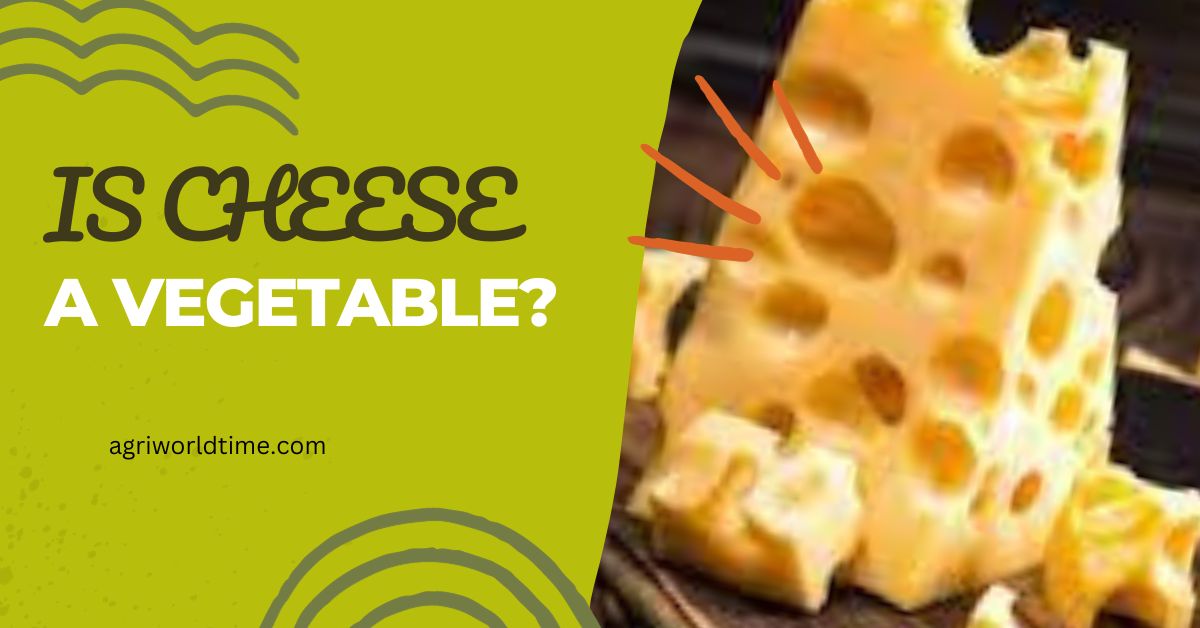In the world of nutrition and dietary choices, there are often debates and misconceptions that leave us wondering about the true nature of certain foods. One such question that has piqued the curiosity of many is, “Is cheese a vegetable?” In this article, we will delve into the fascinating world of dairy products and vegetables to unravel this culinary mystery.
What is Cheese?
Let’s begin by understanding what cheese is. Cheese is a dairy product that is primarily made from milk. It undergoes a complex process of curdling, fermentation, and aging, resulting in a wide variety of flavors, textures, and types. From creamy Brie to sharp Cheddar, cheese is a staple ingredient in countless dishes worldwide.
Nutritional Composition
Cheese is rich in essential nutrients such as calcium, protein, and various vitamins. Its nutritional profile provides several health benefits, including bone health and muscle maintenance. However, cheese is also known for its high saturated fat content, which can be a concern if consumed excessively.
The Vegetable Versus Dairy Debate
What Defines a Vegetable?
Before we can answer whether cheese is a vegetable, let’s clarify what makes something a vegetable. Vegetables are typically plant-based foods that are edible and often consumed for their nutritional benefits. They are a rich source of vitamins, minerals, fiber, and antioxidants. Common vegetables include leafy greens, carrots, broccoli, and bell peppers.
Cheese as a Dairy Product
As mentioned earlier, cheese is a dairy product derived from milk. While it is a valuable source of certain nutrients, it does not fall under the category of vegetables. Vegetables are exclusively derived from plants, while cheese is a product of animal origin.
Categorizing Cheese
Cheese belongs to the dairy category, which includes milk, yogurt, and butter. These products are distinct from vegetables in terms of their source and nutritional composition.
The Importance of Dietary Choices
Balanced Eating
In the quest for a balanced diet, it’s crucial to include a variety of food groups. While cheese is not a vegetable, it can still be part of a healthy diet when consumed in moderation. Balancing dairy products like cheese with an abundance of vegetables can provide a diverse range of nutrients.
Dietary Considerations
Individual dietary choices should be based on personal health goals and preferences. Some people may choose to include or exclude cheese based on dietary restrictions or ethical considerations. It’s essential to make informed choices that align with your nutritional needs and values.
Conclusion
In conclusion, cheese is not a vegetable. It is a dairy product made from milk and does not share the characteristics that define vegetables. While cheese can be a delicious and nutritious addition to meals, it should not be confused with plant-based foods like vegetables. To maintain a healthy diet, aim for a balanced intake of various food groups, including dairy and vegetables.
FAQs (Frequently Asked Questions)
1. Is cheese healthy for you?
Cheese can be a nutritious part of your diet due to its calcium and protein content. However, moderation is key, as it can be high in saturated fats.
2. Can cheese be considered a vegetable substitute?
·No, cheese is not a suitable substitute for vegetables as it is a dairy product, and vegetables provide a different set of nutrients.
3. What are some popular types of cheese?
Popular cheese varieties include Cheddar, Mozzarella, Swiss, and Parmesan, each with its unique flavor and texture.
4. Are there dairy-free cheese alternatives available?
Yes, there are dairy-free cheese alternatives made from plant-based ingredients, such as almond or soy cheese.
5. How can I incorporate both cheese and vegetables into my diet?
You can enjoy cheese in salads, sandwiches, or as a topping for vegetables, but remember to balance it with a variety of fresh vegetables for a well-rounded meal.

